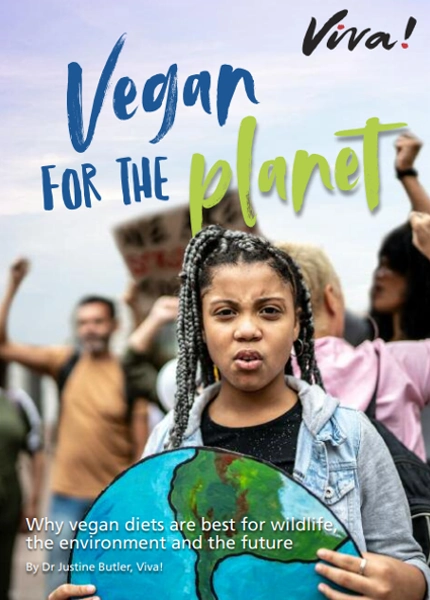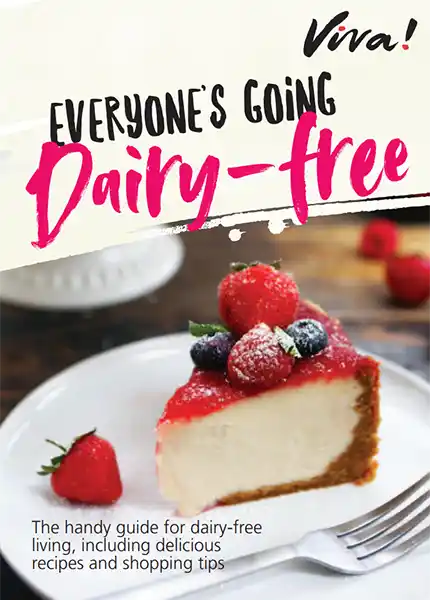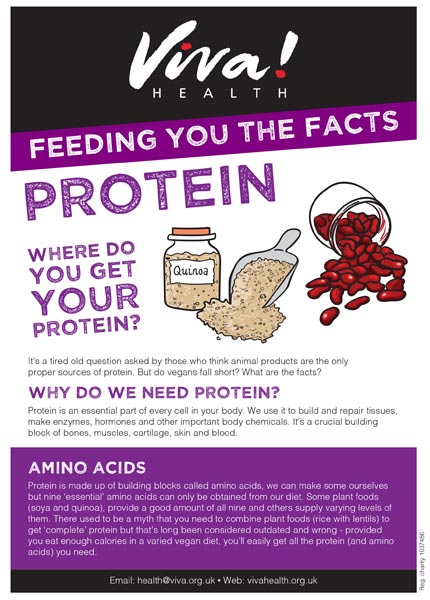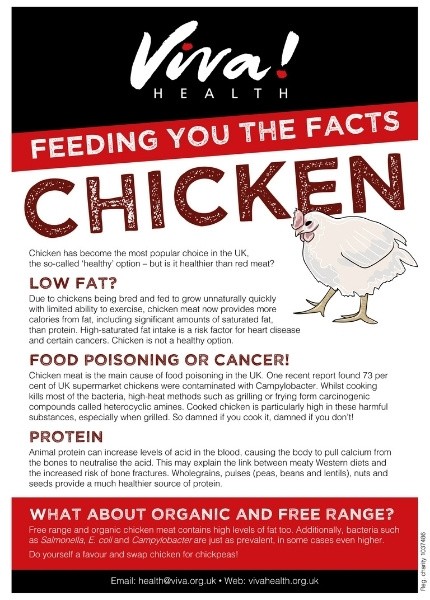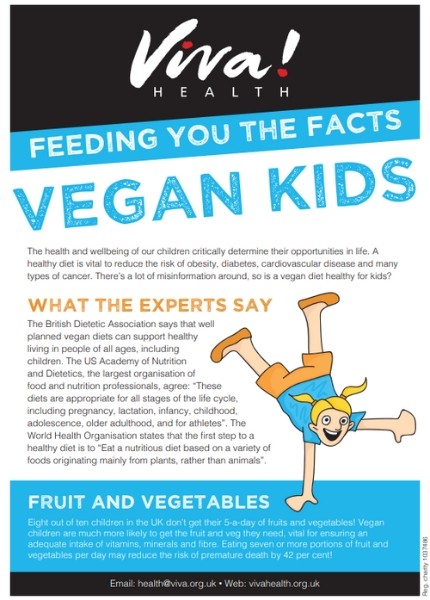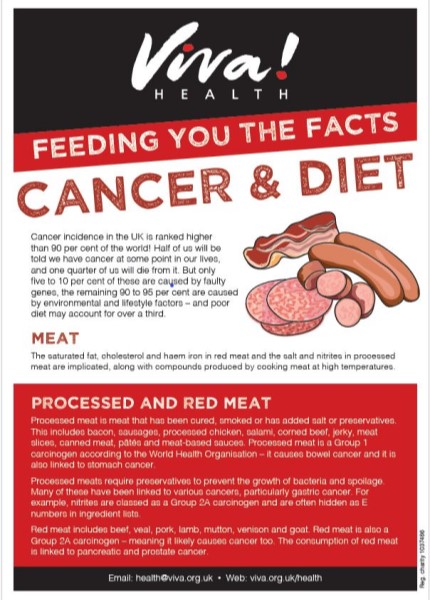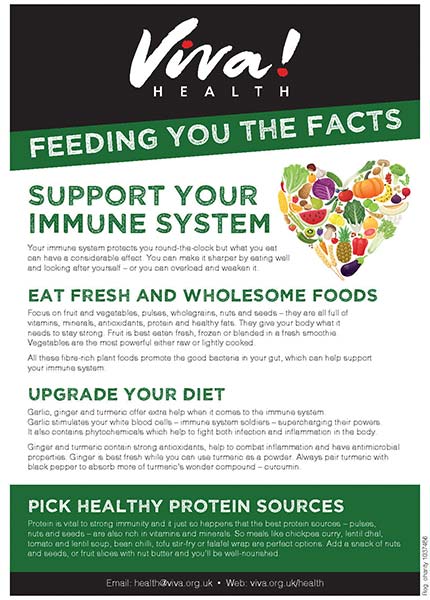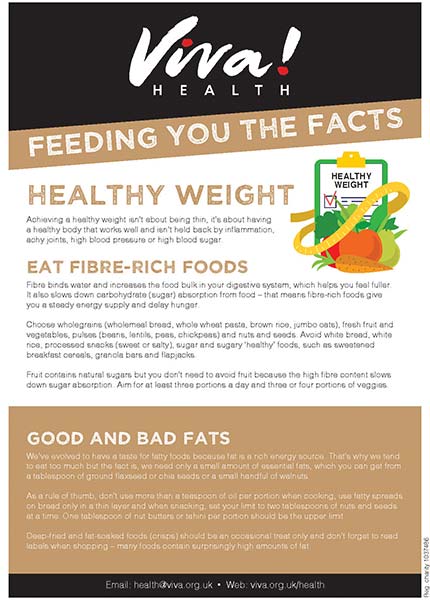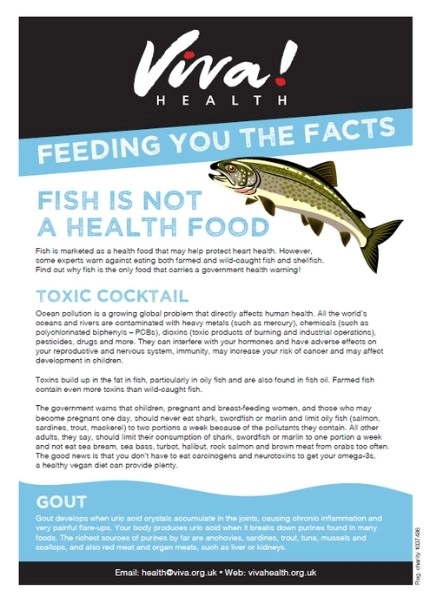Print materials
Vegan for the Planet
- Climate Crisis
- Environment
- Planet
- Wildlife
Our Vegan for the Planet guide explains why animal agriculture is so damaging and how changing the way you eat is the single most effective action you can take to lower your impact on the planet.
Everyone’s Going Dairy-Free
- Cows - Dairy
Everyone’s Going Dairy-free gives a stylish shake-up to one of Viva!’s most popular guides, the old ‘How to Be Dairy Free’.
Mini factsheet: Vitamin B12
- Vitamin B12
Vitamin B12 helps make red blood cells and keeps our nervous system healthy. If you lack vitamin B12 you could suffer from vitamin B12 anaemia – your red blood cells aren’t able to carry oxygen around your body properly.
Mini factsheet: Protein
- Protein
It’s a tired old question asked by those who think animal products are the only proper sources of protein. But do vegans fall short? What are the facts? Why do we need protein?
Mini factsheet: Chicken and red meat
- Chickens - Meat
Chicken has become the most popular choice in the UK, the so-called healthy option – but is it?
Mini factsheet: Children
- Kids
- Vegan diets
The health and wellbeing of our children critically determines their opportunities in life. There’s a lot of misinformation around, so is a vegan diet healthy for kids?
Mini factsheet: Cancer and diet
- Fats
Cancer incidence in the UK is ranked higher than 90 per cent of the world! Half of us will be told we have cancer at some point in our lives, and one quarter of us will die from it
Mini factsheet: Immune system
Your immune system protects you round-the-clock but what you eat can have a considerable effect. You can make it sharper by eating well and looking after yourself – or you can overload and weaken it.
Mini factsheet: Healthy weight
Achieving a healthy weight isn’t about being thin, it’s about having a healthy body that works well and isn’t held back by inflammation, achy joints, high blood pressure or high blood sugar.
Mini factsheet: Fish
- Fish oil
Fish is marketed as a health food that may help protect heart health. However, some experts warn against eating both farmed and wild-caught fish and shellfish.




